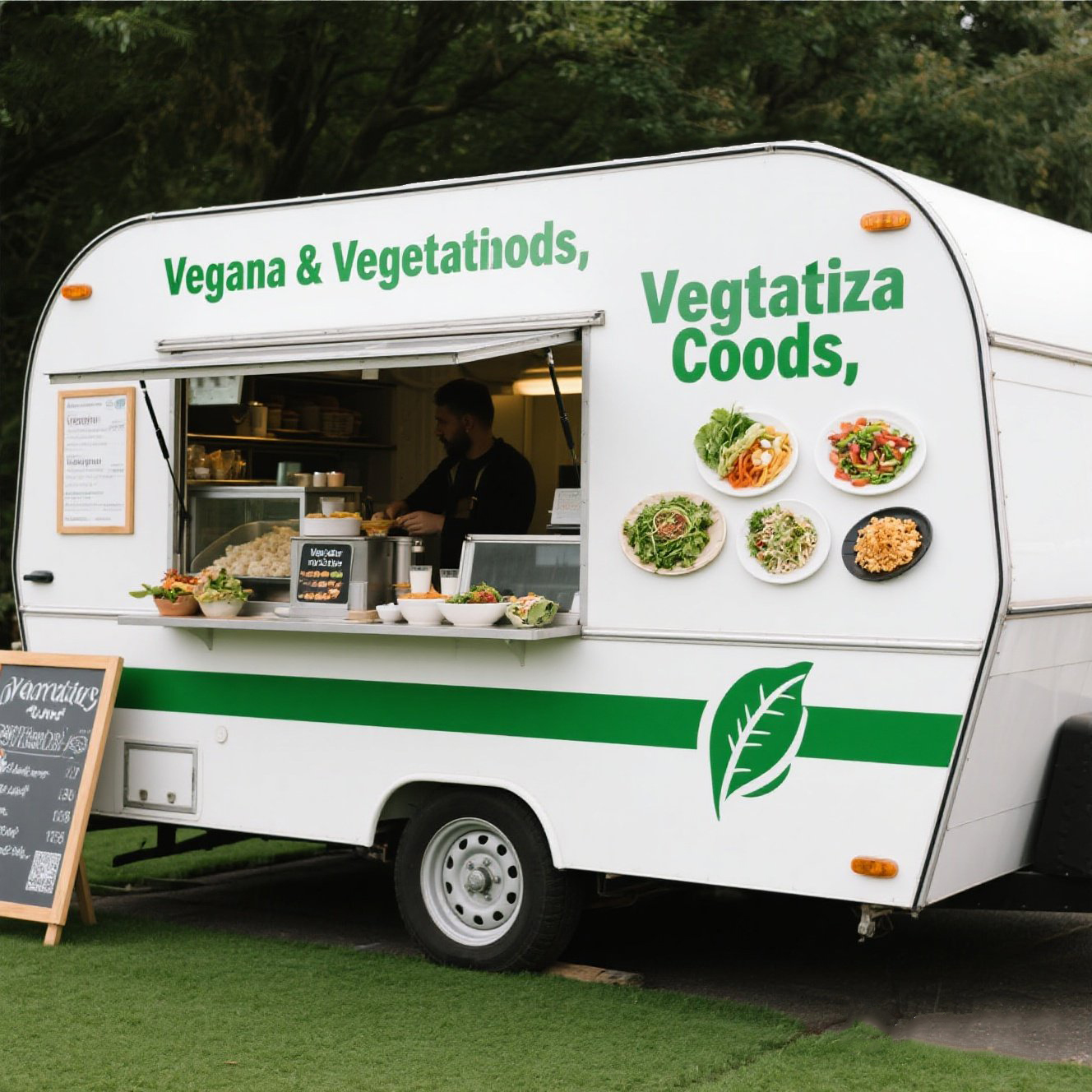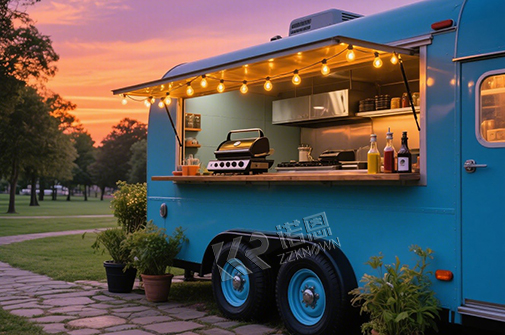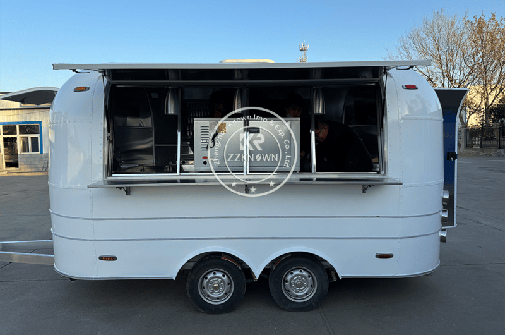If you're planning to buy a small coffee trailer for sale and start your own mobile café business in the U.S., congratulations — you're stepping into one of the fastest-growing food industries today. Mobile coffee and food trailers give entrepreneurs incredible freedom, flexibility, and lower startup costs compared to traditional brick-and-mortar shops.
However, before you can start selling your first cappuccino or croissant, you'll need to meet health and safety regulations required by your local and state authorities. These laws exist to protect both you and your customers — and failing to comply can lead to costly fines or even the shutdown of your trailer.
So, what exactly do you need to know? Let's walk through the key regulations every food trailer owner should understand before hitting the road.

When operating a food or beverage trailer, maintaining hygiene and safety is your legal and ethical responsibility. Foodborne illnesses can occur easily if food, water, or equipment is not handled properly.
Compliance isn't just about passing inspections — it's also about building customer trust. When customers see a clean, well-maintained trailer, they feel confident that their drink or snack is safe to enjoy.
Tip: Most successful coffee trailer owners display their local health permit sticker prominently on their serving window — it's a simple way to show professionalism.
Health department rules may vary slightly depending on your state or county, but most U.S. jurisdictions follow similar standards. Here are the most common regulations:
Your trailer must have:
Potable (clean) water tank — typically at least 30–50 gallons for a small coffee trailer.
Wastewater tank — must be 15–20% larger than your freshwater tank to avoid overflow.
Hand-washing sink — with soap, paper towels, and running hot/cold water.
Three-compartment sink — for washing, rinsing, and sanitizing utensils.
ZZKNOWN's small coffee trailers for sale already include this standard water and sink setup, ensuring your trailer meets the U.S. sanitation code right from the start.
All interior surfaces must be:
Smooth, non-absorbent, and easy to clean
Made of stainless steel or food-grade materials
Free from cracks, peeling paint, or exposed wood
This is why stainless-steel countertops and shelving are essential. They resist bacteria growth and can handle the daily wear of a busy café.
To prevent spoilage and bacterial contamination:
Refrigerators must maintain below 41°F (5°C)
Hot-holding equipment must stay above 135°F (57°C)
A thermometer must be available to check temperatures regularly
If you're storing milk, syrups, and pastries, maintaining proper temperature is critical to pass inspections.
Food handlers must:
Wash hands before handling food or switching tasks
Use gloves when handling ready-to-eat items
Tie hair or wear a hat
Avoid jewelry or personal items that could contaminate food
Most counties also require a Food Handler's Card, which is a short online course and certification test that proves your understanding of food safety practices.
All waste — including used coffee grounds, milk cartons, and wastewater — must be disposed of properly at approved locations. Many coffee trailer owners use a commissary kitchen for this purpose (a licensed commercial facility for refilling water and disposing of waste).

If your trailer includes equipment like espresso machines, ovens, or griddles, you'll need to meet fire safety regulations too. These typically include:
Fire extinguisher (Class K for grease fires and Class ABC for electrical fires)
Proper ventilation hood above cooking or heating equipment
Fire suppression system if you're using gas or open flame
Carbon monoxide and smoke detectors
Even coffee-only trailers may need a vent hood for steam release and air circulation. ZZKNOWN offers models equipped with a built-in vent hood and air vent system to help owners comply with these standards easily.
Electrical wiring and plumbing in a food trailer must follow U.S. safety codes. All electrical components should be installed professionally and tested for load capacity.
Typical requirements include:
Ground fault circuit interrupters (GFCI) for all sockets near water sources
Weatherproof outlets for external power connections
32A or 16A plug compatibility depending on your setup
Clearly labeled breakers and wiring diagrams for inspection
ZZKNOWN's trailers come with pre-installed wiring that meets U.S. standard voltages (110V–120V) and can be customized to your region's requirements.
Before you can open your mobile coffee trailer to the public, several permits are required:
| Permit Type | Purpose | Where to Apply |
|---|---|---|
| Business License | Legally register your trailer business | City or County Clerk's Office |
| Health Permit | Ensures food handling meets local standards | Local Health Department |
| Fire Department Inspection | Certifies fire safety compliance | City Fire Marshal |
| Commissary Agreement | Confirms you have a base of operations | Health Department or Commissary |
| Vendor Permit | Allows vending in certain zones or events | City Business Licensing Office |
Pro Tip: Keep digital and printed copies of all permits inside your trailer at all times — inspectors often do unannounced visits.

Once approved, you'll need to pass routine inspections to keep your license valid. Inspectors may visit annually, semi-annually, or during events.
They'll typically check:
Water temperature and tank condition
Cleanliness of surfaces and storage
Expiration dates of food items
Functioning of refrigerators and sinks
Proper labeling of cleaning chemicals
Always maintain a cleaning log and equipment maintenance record—it shows inspectors that you're serious about safety.
Even beyond compliance, adopting daily best practices helps your business run smoother and builds a positive reputation.
Here are a few:
Sanitize counters and utensils daily
Use color-coded cutting boards (if preparing food)
Store coffee beans and dry goods in sealed containers
Keep milk and dairy products refrigerated until use
Flush water lines regularly to avoid buildup in espresso machines
Dispose of wastewater properly every day
Remember: health inspections are not the enemy—they're there to help ensure you operate responsibly and safely.
When purchasing a small coffee trailer for sale, it's smart to choose a model that's already designed to meet international health and safety standards.
ZZKNOWN, a professional Chinese manufacturer with over 15 years of experience, builds custom food and beverage trailers specifically for the U.S. market. Each unit is certified under CE/DOT/VIN/ISO standards, ensuring it's compliant and ready for easy local inspection.
Standard safety features include:
Food-grade stainless steel interiors
3-compartment sink with hand-washing station
Fresh and wastewater tanks
Ventilation hood and air vents
LED lighting and electrical safety system
Slip-resistant flooring and smooth interior panels
Optional fire suppression system and generator box
ZZKNOWN also provides 2D and 3D layout designs before production, allowing you to ensure your trailer meets both business needs and local regulations.
.png)
A small coffee trailer for sale typically costs between $6,000 and $15,000, depending on size, equipment, and customization.
ZZKNOWN offers several models:
2.5m (8ft) trailer – perfect for espresso and drinks only
3.5m (11ft) trailer – includes fridge, sinks, and workspace for two baristas
4.2m (14ft) trailer – ideal for full-service coffee and snacks
With all health and safety systems pre-installed, your trailer will be ready for inspection and operation as soon as it arrives.
Starting a coffee trailer business in the U.S. is an exciting and profitable opportunity — but success depends on more than just great coffee. You need to comply with all health, safety, and licensing regulations to operate legally and protect your reputation.
By investing in a small coffee trailer for sale from ZZKNOWN, you get peace of mind knowing your trailer is built to meet these standards from day one — saving you time, money, and stress.
When your trailer is clean, compliant, and beautifully designed, customers will notice — and your business will thrive.




